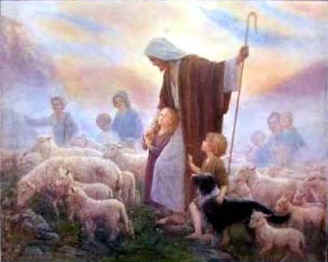Since its release yesterday, I have read the full letter, as well as assorted summaries and commentaries, by churchmen, journalists and victims' groups. Reflecting on it, I simply come up with more questions than answers - so many, in fact, that I propose to respond not in a single post, but in a series. Yes, there are other useful things I could be writing about, would prefer to be writing about: I am bursting to get down some posts which elaborate on James L'Empereur's ideas of the charism and spiritual gifts of gay spirituality, and on what (global) history has to say about the family, sex and natural law, for instance. but this response to the greatest crisis facing the church in recent history is so important, that other issues will have to wait. I ask for the patience and indulgence of my non-Catholic readers, who may find the whole sordid saga too much to pay attention.
The first and most important question, which I have not seen raised anywhere else, is why on earth should the idea of a pastoral letter even be considered appropriate in the first place? as I look at it, there is a sense in which, unless it contains extraordinary wisdom (and this one patently does not), the very idea simply perpetuates part of the problem. This point was driven home to me as I read the responses of too many bishops and Vatican spokesmen, which one phrase constantly recurs: the "Holy Father". Like "pastoral" itself, these words in this context, are misleading and harmful.
The "Good Shepherd: Jesus Christ, or Benedict XVI?
"Pastoral" of course, is a word widely used in the Church to describe the nature of the relationship between church and people, and is also widely used elsewhere, as in schools. The problem lies in its hidden connotations.
The word comes from the image of the Good Shepherd guiding and guarding his sheep, a standard image from the Gospels as applied to Christ. It is an image that the church routinely appropriates to itself, to describe the role of its own clergy. In doing so, especially when applied to the papacy as with "pastoral letters", it perpetuates the myth that the papacy races its lineage in unbroken succession to SS Peter and Paul, and like them, stands in for and take the place of Jesus Christ of Earth. This myth in turn, provides the basis for the modern idea that as the representative of Christ on earth, standing in for him as some kind of locum, the Holy Spirit will guide and protect him in turn, keeping him from any possibility of error. - and so leading to the flawed doctrine of papal infallibility, which has done so much harm to the people of the church.A related dangerous concept is that of the "Holy Father", as applied not to the man, but to the office itself. The "pope " is not necessarily holy, nor is he infallible - as any cursory look at history will show. Nor is he a "father" or a "shepherd" to the people of the Church: we are not children to be told what to do or to believe, we are not sheep to follow blindly wherever we are led. He is, rather the unelected leader of the world's largest global corporation, unaccountable to any other person, remote and isolated from the reality of people's lives. He is unelected that is, excepted by a self-perpetuating cabal of cardinals appointed by his predecessors, and who will be replaced by his own appointees. As such, his true role should be to listen and learn as much as to preach.
The constant and unthinking use of these terms simply reinforces one of the fundamental problems underlying the problem of abuse: excessive deference to the authority and supposed untouchability of the clergy. Benedict himself knows this, as he stated clearly in the letter:
Certainly, among the contributing factors we can include:Certainly, among the contributing factors we can include:
........a tendency in society to favour the clergy and other authority figures; and a misplaced concern for the reputation of the Church and the avoidance of scandal
In reminding us of this, he makes no reference to the misplaced insistence inside the Church on deference to the papacy itself, which is far more extreme than the "favouring" given to lesser clergy, whoa re at least subject to the secular authority of the states where they live and work. He himself, as absolute monarch of his own tiny fiefdom, is beholden to absolutely nobody. In applying a double standard to himself of course, Benedict has form: as a young theologian, he was outspoken in his pleas for academic freedom of thought and inquiry for theologians, and in demands for transparency by the Congregation for the Doctrine of the Faith, in dealing with dissenting views. That firm belief in academic freedom and transparency was easily discarded later, when he himself became head of the CDF . That routine application of double standards is visible as a running thread through the entire letter - about which more will follow, later. What the Church needed from Benedict to begin a process of healing in the Church was not a "pastoral" letter from a shepherd to his flock of sheep, but instead an apologia, a confession of guilt and act of contrition on behalf of the whole church - including himself. That statement we did not get. Nor, given his history of passing the buck, should we expect it any time soon.

No comments:
Post a Comment